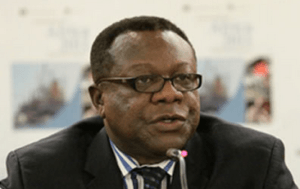Africa needs 4.3 million engineers to implement major projects – Nnadozie

Africa’s economy can be buoyed and stimulated if investments in infrastructure grow – the continent’s greatest needs are in infrastructure.
The 2015 Africa Tourism Monitor, an annual report on tourism in Africa, has found that transport infrastructure and services for intra-continental travel are key constraints limiting the growth of tourism in Africa.
The report, a publication of the African Development Bank (AfDB), says although many major airlines fly to Africa from North America, Europe and Asia, once visitors reach the continent, they encounter difficulties in intra-Africa travel from East to West, and North to South.
“One of the major challenges to travel in Africa is stringent and restricted air service markets, designed to protect the share held by state-owned air carriers,” the report said.
There are however, increasing opportunities for infrastructure development on the continent. A report by PwC estimates that infrastructure spend in Africa would reach $180 billion per annum by 2025, up from $70 billion in 2014.
In 2012 the AfDB proposed plans to float Africa’s first infrastructure bonds to member nations to raise up to $22 billion for investments in infrastructure projects such as ports, railways, roads and energy, across the African continent.
Meanwhile, in spite of the funding challenges, Africa is said to be spending $30 billion of internally generated funds on infrastructure development contrary to the belief that the continent depends entirely on external aid to fully finance the $45 billion infrastructure bill.
A World Bank study, shows that out of the $93 billion required for infrastructure development, of the $45 billion being spent now, Africa out of its own revenue resources is spending about $30 billion.
To fulfill these infrastructure requirements for economic development, the continent also has to fill the gap for engineers.
Currently Africa has a gap of 4.3 million engineers if the continent was to implement all its flagship projects, Prof. Emmanuel Nnadozie, the Executive Secretary of the Africa Capacity Building Foundation (ACBF) has been cited as saying in a press release.
“We need 1.6 million agricultural scientists and researchers; we have identified a gap of 2.8 million water and sanitation engineers. And this relates to the targeted needs identified for 2023 – the 10-year target for the first leg of Africa 2063,” he said.
He also noted that right now over 80 per cent of students are enrolling in social sciences and humanities and there needs to be a conscious effort to stem this trend and direct more students towards the STEM disciplines (science, technology, engineering and mathematics).
Prof. Nnadozie argues further that, “To achieve economic, political and social transformation, we will need critical skills and a change of mindsets.”
He believes that the skills gap was not only relevant to the private sector but that institutional capacity needed to be reinforced.
“To what extent are our constitutions development-friendly. We also need to ensure our parliamentarians have the necessary skills to push through a development agenda and understand the treaties they are ratifying,” he said.
Adding, “We need to educate African youths in order to solve African problems.”
The ongoing Third Pan African Capacity Development Forum in Harare, Zimbabwe is expected to address these issues.
By Emmanuel K. Dogbevi
Copyright © 2015 by Creative Imaginations Publicity
All rights reserved. This article or any portion thereof may not be reproduced or used in any manner whatsoever without the express written permission of the publisher except for the use of brief quotations in reviews.
